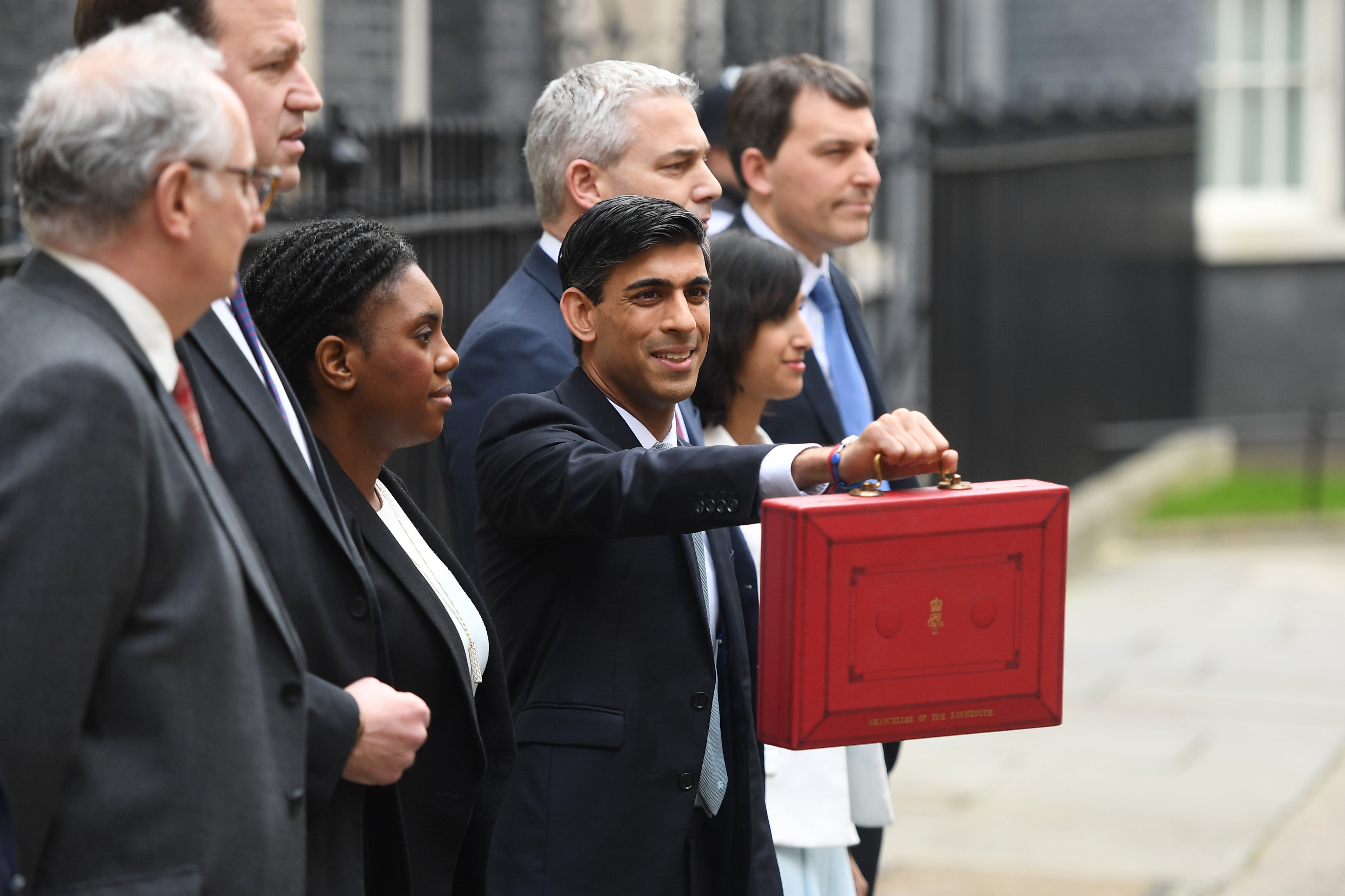Sluggish growth since Tories came to power leaves average Brit £4,000 worse off
Labour accuses government of running ‘low-growth economy’ compared to neighbours

Your support helps us to tell the story
From reproductive rights to climate change to Big Tech, The Independent is on the ground when the story is developing. Whether it's investigating the financials of Elon Musk's pro-Trump PAC or producing our latest documentary, 'The A Word', which shines a light on the American women fighting for reproductive rights, we know how important it is to parse out the facts from the messaging.
At such a critical moment in US history, we need reporters on the ground. Your donation allows us to keep sending journalists to speak to both sides of the story.
The Independent is trusted by Americans across the entire political spectrum. And unlike many other quality news outlets, we choose not to lock Americans out of our reporting and analysis with paywalls. We believe quality journalism should be available to everyone, paid for by those who can afford it.
Your support makes all the difference.Sluggish growth since the Conservatives came to power in 2010 has left the average Brit nearly £4,000 worse off, new figures suggest.
OECD and Office for Budget Responsibility numbers show the UK is on course to have grown just 11 per cent in real terms between 2010 and 2023.
This compares to a growth rate of over 24 per cent for the average across other OECD advanced economies – leaving a gap per person of £3,700.
The analysis, put together from the official figures by Labour, comes as the opposition party puts growth at the heart of its messaging.
In a speech in Liverpool last week Keir Starmer said a future Labour government's priorities would be “growth, growth, growth”.
He said the UK economy was "weaker than its competitors. Less resilient. Brittle", adding: "And ultimately, we are all poorer for it".
The OECD figures cited by the opposition party show that the UK had one of the deepest hits to its economy in 2020, at -9.3 compared to the OECD average of -4.3 per cent.
But the economic malaise was not confined just to the Covid pandemic, with mounting evidence that growth has been hit over the last 12 years by both Brexit and austerity.
Labour said the lost growth would be also have contributed £85bn in lost tax revenue for the public finances.
And UK real terms wages are still lower than before the 2008 financial crash despite a decade and a half of economic activity.
The estimate comes amid a biting cost of living crisis, with soaring bills and prices. This week new estimates suggest that typical domestic energy bills could hit more than £3,600 a year this winter, up from £1,400 in October 2021.
The National Institute of Economic and Social Research said on Wednesday that inflation would continue to soar to “astronomical” levels thanks to gas price rises and the escalating cost of food.
Rachel Reeves, Labour’s shadow chancellor, said: “Under the Conservatives, Britain is falling behind our competitors, pushing down wages and living standards.
“It is damning that 12 years of successive Tory governments have left the average Brit £4,000 worse off compared to other countries in the OECD.
“Low growth economies cannot rise to meet the challenges of the future.
With our Climate Investment Pledge, New Deal for Working People and plan to buy, make and sell more in Britain, Labour will deliver the strong, secure and fair growth our country needs.”
Speaking on Monday Chancellor Nadhim Zahawi on Monday said he rejected a "doomster" attitude to the economy
"We need a ‘booster’ attitude to the economy, not a ‘doomster’ one, in order to address cost of living woes and the challenges on the world stage," he told BBC Radio 4's Today programme.
"Liz [Truss] will overturn the stale economic orthodoxy and run our economy in a Conservative way.”
Join our commenting forum
Join thought-provoking conversations, follow other Independent readers and see their replies
Comments